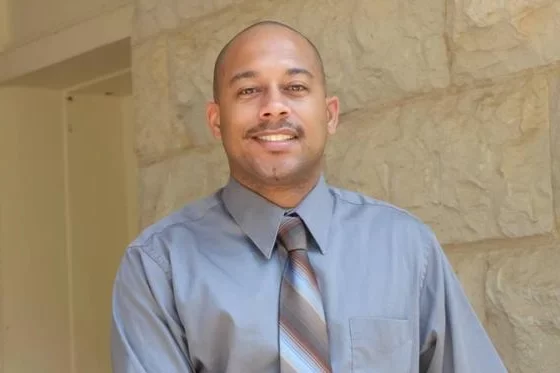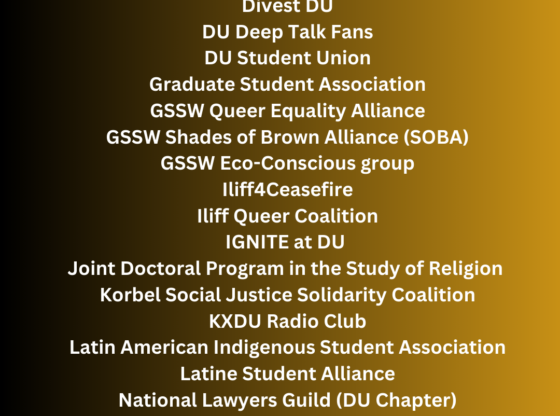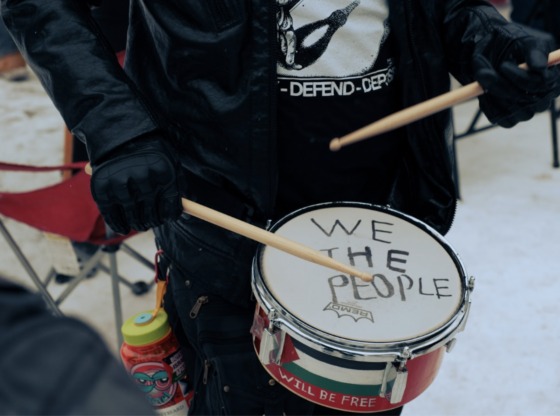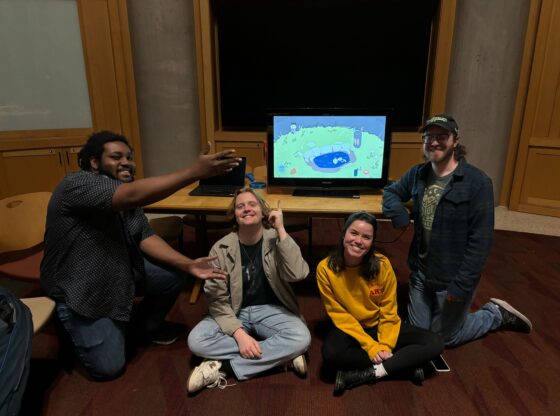Continuing the discussion of issues facing America, Karen Hughes, former counselor to President George W. Bush will speak Oct. 10 at the Ritchie Center.
Her appearance with author William Bennett is the third in the “Bridges to the Future” program started last month by Chancellor Dan Ritchie.
Last week, the program dealt with the possibility of the United States going into a preemptive war with Iraq. This issue was debated by former National Security Advisor Richard Allen and attorney and author Craig Barnes in front of a crowd of 150 in Sturm Hall as a part of the “Bridges to the Future” lecture series.
The series, hosted jointly over the next year by the University of Denver and the University of Colorado, focuses on American history and values in light of Sept. 11 and will feature several other public meetings. The goal of the series is to create greater public discourse over the issues facing the United States in a post-9/11 world and to determine what our role as citizens will be in deciding how those issues are played out.
“We wanted to encourage people to think about the important issues and especially about their own personal values,” Ritchie said about the Bridges Program.
At the debate, the two speakers differed greatly on the right course of action to take regarding Iraq.
Allen argued that the “systematic crimes of the Saddam Hussein regime” necessitate a change in leadership in Iraq that would “require the use of military force.”
Barnes favored an international approach and intensive public discourse before any action. He invoked the imagery of a “lone ranger” who “places value in heroism above all else” in describing the administration’s approach to war. He went on to say that the rush to get a decision from Congress on the proposed invasion by October had “nothing to do with any date that is significant to national security,” and that the only importance of October was the upcoming midterm elections in November.
Allen defended the president and his administration noting that he has “never known a finer national security team” and that he resented the assertion that the midterm elections are a motivating factor in the president’s timeline he suggested that it might even be advantageous for President Bush to wait until after the election when he might have a larger support base.
The new policy of preemptive strikes in the prevention of terrorism was the central point of contention. Barnes contended that the policy is a departure not only from the policy of the United States since the beginning of the Cold War, but a violation of the fundamental principle of the United Nations charter.
Allen countered by saying that the threat of Iraq’s use of weapons of mass destruction and its violation of UN sanctions was grounds to strike first.
He voiced the theory that “there are just wars” and argued that the threat Saddam Hussein poses to American national interest and the interest of our allies (primarily Israel) is cause to justify the use of force.
But while the speakers differed greatly in their views on how to proceed, they agreed that public discourse and democratic procedures are the only way to reach a much-needed unified national consensus. They agreed that there is no immediate rush and that the approval of Congress is necessary and that some form of an international coalition must be formed in order to act.
Barnes said, “We cannot be militaristic in order to create democracy, we must be democratic.”
Allen concluded with “The war on terrorism will go on, and on, and on…” when it comes to action in Iraq “we must act now.”
The Iraq debate followed the Bridges to the Future inaugural event, a speech by former U.S. Senator John Glenn.
Glenn talked about his experiences as an astronaut, the possible war with Iraq and the need to participate in the American democratic process.
Glenn said Americans need to consider the implications and consequences of war. He emphasized the need for Congress to debate any decisions regarding Iraq.
Glenn also proposed a compulsory period of government service in order for all Americans to contribute to their country. He said that this would distribute responsibility across the population instead of placing it only on volunteers.
The Rocky Mountain Children’s Choir and the Colorado State University Wind Ensemble performed at the event.










